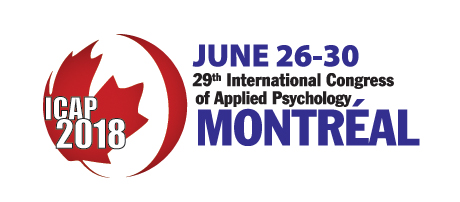2018 Pre-Congress Workshop 9: From the Military to the Health Care Frontline: Can National Defense’s Resiliency Model Help Health Care Providers Delivering Medical Assistance in Dying?
Jun 24, 2018 08:30AM
Palais des congrès de Montréal

| Presented by: | Kerri Ritchie, Caroline Gérin-Lajoie, Mike Kekewich |
| Sponsored by: | Psychologists in Hospitals and Health Centres |
| Continuing Education Credits: | 3.5 |
| Notes: |
- |
| Cost: |
CPA/IAAP Members: $195.00 + GST + QST Non-Members: $275.00 + GST + QST
Click here to download the country list |
| Duration: | Half Day (8:30 – 12:30) |
| Target Audience: | Clinicians and graduate students |
| Skill/Difficulty Level: | Intermediate/advanced Level |
|
Workshop Description: As the rapid rate of change in the health care landscape continues, it has become of paramount importance to support staff so that they can adapt while providing patient care. There is increasing recognition that health care organizations should play a larger role in supporting and sustaining the health and wellness of their staff (M Panagioti et al, 2017; CP West et al, 2017). In 2016, with the passing of bill C-16, The Ottawa Hospital (TOH) began offering Medical Aid in Dying (MAiD). A Resiliency Program was developed to support the physicians and other health care professionals involved in MAiD (Ritchie, Gerin-Lajoie, & Naik, 2017). The “MAID Resiliency Program” was adapted from National Defense’s Road to Mental Readiness Program (R2MR), a comprehensive program to build resiliency in high stress environments (Castro et al, 2009; Van den Berge, 2011; Zamorski, 2012). In 2017, TOH received the Leading Practice Award from Accreditation Canada and the Health Standards Organization for their MAiD program. Adaptations of this program are currently underway for other high stress clinical settings at The Ottawa Hospital. This “train the trainer” workshop will discuss the current Canadian Landscape of MAiD, present The Ottawa Hospital MAiD Resiliency Program, its theoretical underpinnings, and specific resiliency skills (self-assessment arousal control, restoration, and team cohesion and support). Team experiences, data, and lessons learned will be discussed. Large and small group discussions, combined with hands on activities, will prepare participants to develop resiliency tools for their organizations. |
|
|
Learning Outcomes:
|
|
